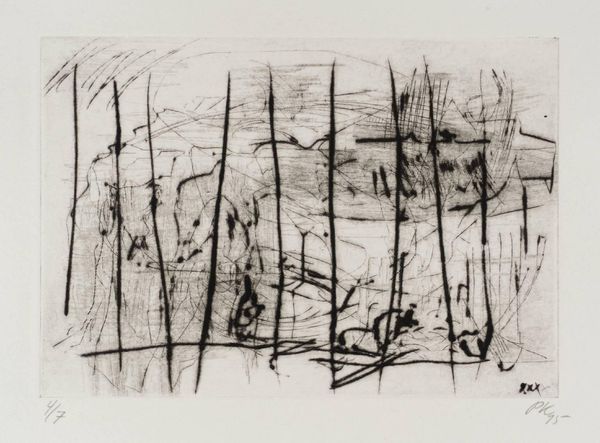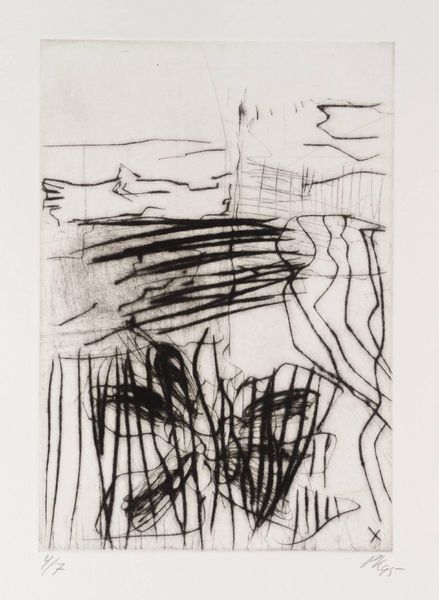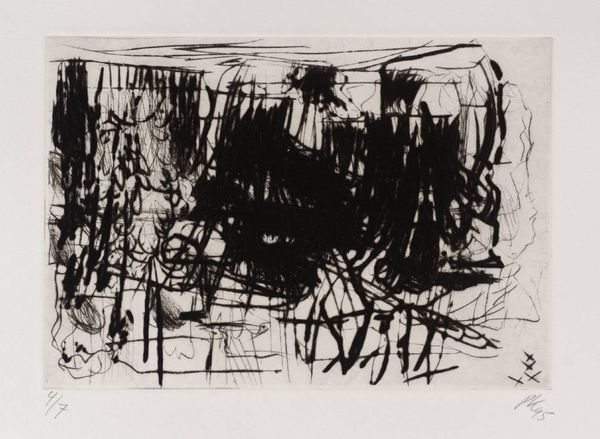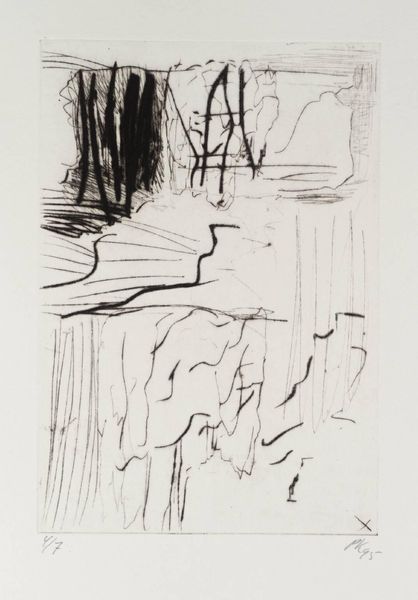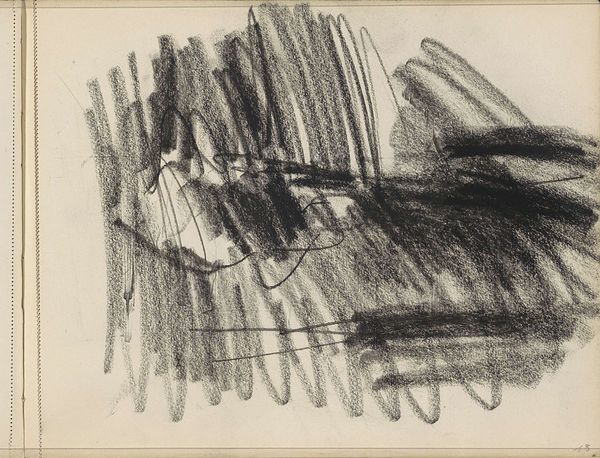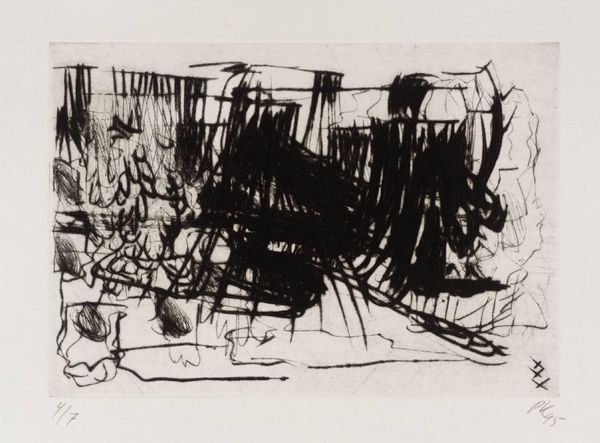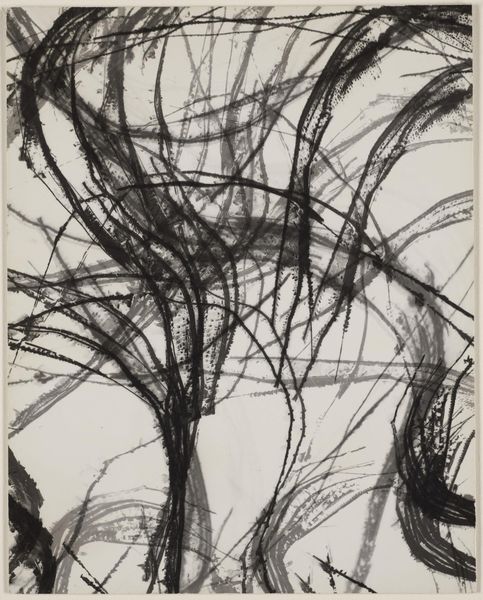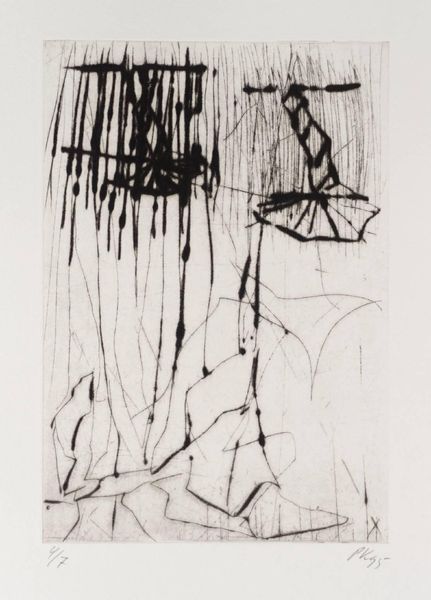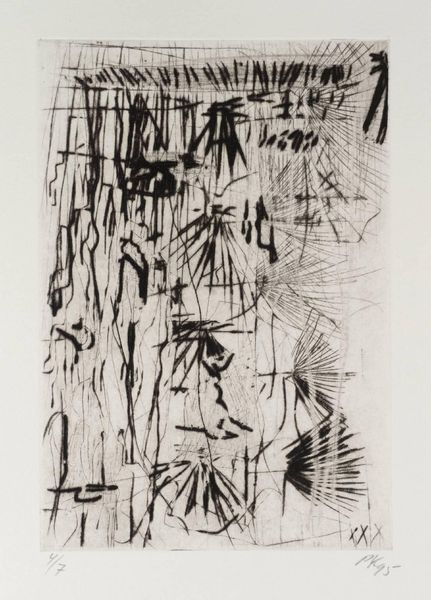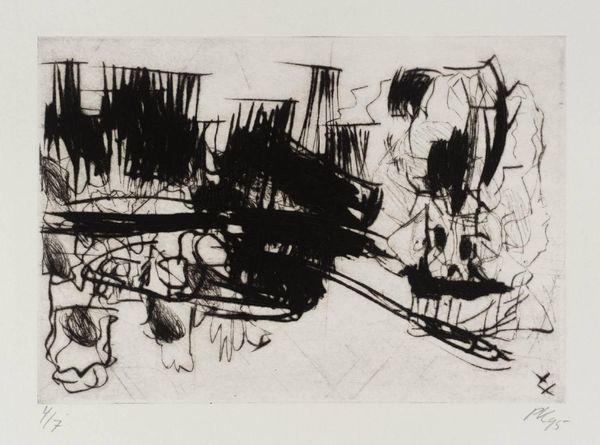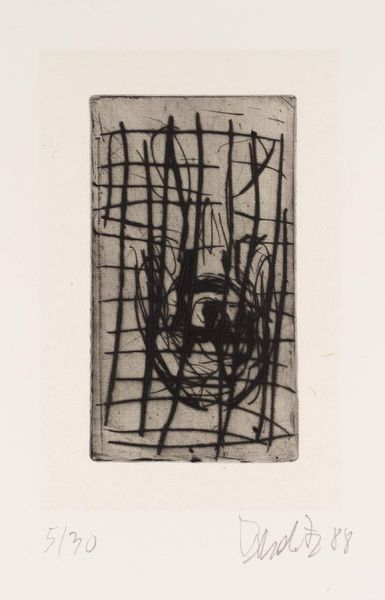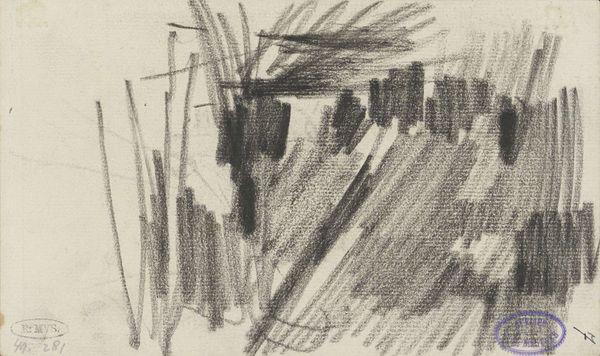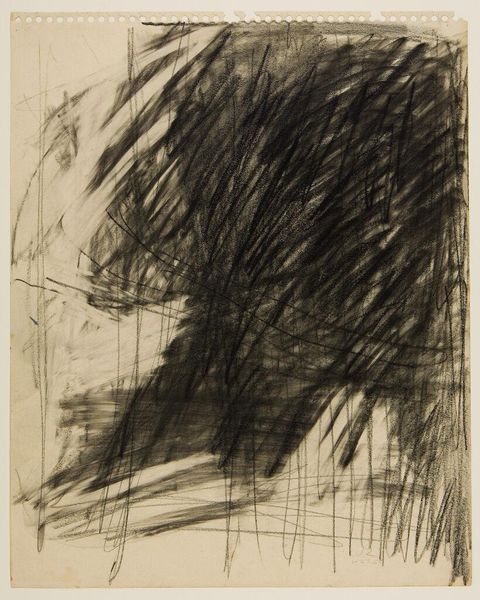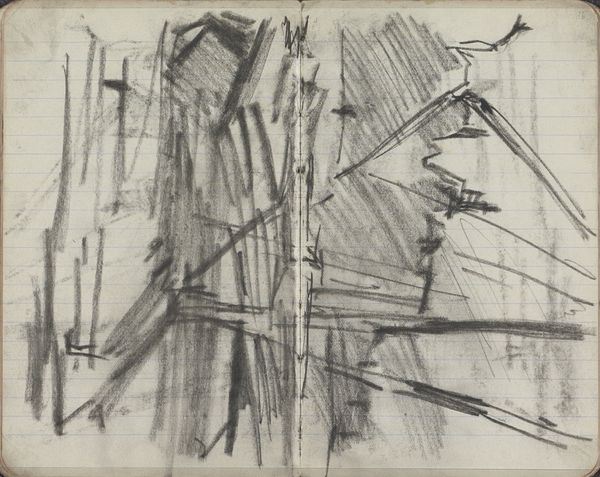
Dimensions: image: 378 x 517 mm
Copyright: © The estate of Hans Hartung | CC-BY-NC-ND 4.0 DEED, Photo: Tate
Curator: Hans Hartung’s etching, simply titled 24, presents a captivating interplay of lines. What’s your immediate take? Editor: I find it quite oppressive, actually. The stark black lines, almost like prison bars, seem to cage the viewer. Curator: Interesting. I see potential narratives within the gestures. The artist’s hand, his psychological state, made visible across history. Editor: I think understanding Hartung's experience during World War II offers important insight. This chaotic layering of lines might reflect the trauma and displacement of that era. Curator: Perhaps, but the deliberate mark-making also transcends personal experience. I see the symbolic language of abstraction pushing beyond any singular context. Editor: I agree, but we can't divorce art from history, especially considering abstraction’s role as protest against oppressive regimes. Curator: A fair point. It seems we both find resonance here, just through different lenses. Editor: Indeed. It reminds us that art is always open to reinterpretation, shaped by our own experiences.
Comments
Join the conversation
Join millions of artists and users on Artera today and experience the ultimate creative platform.
tate 9 months ago
⋮
Hartung was acknowledged as one of the leading abstract painters in Paris after the Second World War. His prints relate closely to the thousands of brush and ink drawings that he made in 1953-6. Dynamic compositions emerge from clusters of lines tracing repeated gestures. Hartung believed that these forms were comparable to those in the natural world. He wrote: 'Our organic knowledge, whether it is of the flow of blood or of the force which is in a growing stem, finds its parallel, its equivalent, in what we create.' Gallery label, August 2004
